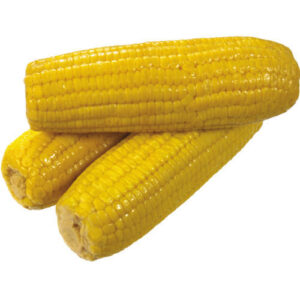Sweet Corn Is Non-GMO?
Sweet corn is non-GMO, right?

New data from a simple survey of 55 vendors in 14 states indicates farmers are planting more GMO sweet corn for the fresh market (corn on the cob) than previously thought. IRT volunteers visited both farmer’s markets and grocery stores. 31 vendors confirmed the sweet corn was GMO; 24 confirmed that it was conventional non-GMO. Not included in the data is the availability of organically grown sweet corn.
In several instances (not included in the results), the origin was unknown, or the vendor did not want to say it. While the data is by no means conclusive, or representative of the entire U.S., one thing is clear: before you buy those roasting ears, you really should ask, “is this non-GMO?”
Data for frozen or canned corn is very difficult to obtain because processors combine batches of raw corn from several suppliers. You may almost be assured that fresh frozen or canned corn – especially yellow corn – is mostly GMOs. Certified organic is the way to go.
Sweet corn is different from field corn.
Sweet corn varieties have more sugar and less starch. Raw sweet corn is classified as a vegetable.

Field corn is also used to make corn chips and tortillas, cereals too! Choose organic or visit Non-GMO Project for verified non-GMO brands.
Over 94 million acres of field corn were planted in the U.S. in 2016. Of that, approximately 92% was planted with GMO biotech varieties including both herbicide-tolerant and Bt traits. For detailed use of field corn, see this report from the National Corn Growers Association.
The researchers, affiliated with the Committee for Independent Research and Information on Genetic Engineering (an independent, nonprofit association dedicated to studying the impacts of genetically modified organisms), published their detailed critique of the Monsanto studies in the International Journal of Biological Sciences (2009; 5:706-726). They concluded that the data — which Monsanto claimed proved the corn varieties were safe to eat — actually suggest potential kidney and liver problems resulting from consumption of all three modified corn varieties, as well as negative effects on the heart, adrenal glands, and spleen. The findings confirm a 2007 report from the same researchers on a single variety of modified corn.
Discover more from Sweet Corn Specialist at Cameron Highlands, Malaysia
Subscribe to get the latest posts sent to your email.


